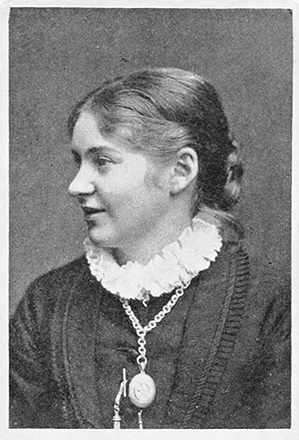Sedlighetsdebatten on:
[Wikipedia]
[Google]
[Amazon]
 The Nordic sexual morality debate (Danish: , Swedish: , Norwegian: ) was the name for a cultural movement and public debate in
The Nordic sexual morality debate (Danish: , Swedish: , Norwegian: ) was the name for a cultural movement and public debate in
"Sedlighetsdebatten"
{{Subscription required 1880s in Denmark 1880s in Norway 1880s in Sweden Cultural history of Denmark Cultural history of Norway Cultural history of Sweden Debates about social issues Morality Sex scandals in Denmark Sex scandals in Norway Sex scandals in Sweden Sexual ethics Social commentary Social ethics Social history of Denmark Social history of Norway Social history of Sweden
 The Nordic sexual morality debate (Danish: , Swedish: , Norwegian: ) was the name for a cultural movement and public debate in
The Nordic sexual morality debate (Danish: , Swedish: , Norwegian: ) was the name for a cultural movement and public debate in Scandinavia
Scandinavia is a subregion#Europe, subregion of northern Europe, with strong historical, cultural, and linguistic ties between its constituent peoples. ''Scandinavia'' most commonly refers to Denmark, Norway, and Sweden. It can sometimes also ...
taking place in the 1880s, in which sexuality and sexual morals, particularly the contemporary sexual double standard, were discussed in newspapers, magazines, books and theatrical plays.
Background topic of the debate
The topic was criticism of the contemporary sexualdouble standards
A double standard is the application of different sets of principles for situations that are, in principle, the same. It is often used to describe treatment whereby one group is given more latitude than another. A double standard arises when two ...
prevalent in the 19th century, in which it was socially acceptable for men to have premarital sexual experience, while women were expected to be virgins. Connected to this was the contemporary view on prostitution
Prostitution is a type of sex work that involves engaging in sexual activity in exchange for payment. The definition of "sexual activity" varies, and is often defined as an activity requiring physical contact (e.g., sexual intercourse, no ...
, which was sanctioned as a "necessary evil" because of this double standard, since men were expected to have sexual experience prior to marriage, in parallel to the fact that extramarital sex was socially banned for unmarried women. This was an issue that was raised by anti-prostitution organizations, such as the Svenska Federationen in Sweden, Finska Federationen in Finland, and Foreningen imod Lovbeskyttelse for Usædelighed
Foreningen imod Lovbeskyttelse for Usædelighed (Association against the legal protection of prostitution), was the Danish equivalent of the British Ladies National Association for the Repeal of the Contagious Diseases Acts. It was established in ...
in Denmark.
Views
The debate was divided into two sides:Moderate view
The moderate side, of whichBjørnstjerne Bjørnson
Bjørnstjerne Martinius Bjørnson ( , ; 8 December 1832 – 26 April 1910) was a Norwegian writer who received the 1903 Nobel Prize in Literature "as a tribute to his noble, magnificent and versatile poetry, which has always been distinguished ...
was the most known representative, wished to solve this double standard by demanding that men also be virgins on their wedding night, just as women were. He believed that free love did not allow for the development of positive traits such as self-restraint and a focus on virtue. This was the more accepted view.
Radical view
The more radical side, of whichEdvard Brandes
Carl Edvard Cohen Brandes (21 October 1847 – 20 December 1931) was a Danish politician, critic and author, and the younger brother of Georg Brandes and Ernst Brandes. He had a Ph.D. in eastern philology.
Biography
Brandes was a member of th ...
and Georg Brandes
Georg Morris Cohen Brandes (4 February 1842 – 19 February 1927) was a Danish critic and scholar who greatly influenced Scandinavian and European literature from the 1870s through the turn of the 20th century. He is seen as the theorist behind ...
were the most known representatives, demanded that women be free to enjoy a sexual life prior to marriage, as men were. This was a very controversial view in the 19th century.
Cultural works associated with the 1880s debate
''Getting Married'' byAugust Strindberg
Johan August Strindberg (; ; 22 January 184914 May 1912) was a Swedish playwright, novelist, poet, essayist, and painter.Lane (1998), 1040. A prolific writer who often drew directly on his personal experience, Strindberg wrote more than 60 pla ...
and the legal court case that surrounded it was one of the perhaps most known incidents during the debate.
It also caused a debate within the literary world as to whether literature should address these questions at all. Other well-known works in the debate are Henrik Ibsen
Henrik Johan Ibsen (; ; 20 March 1828 – 23 May 1906) was a Norwegian playwright, poet and actor. Ibsen is considered the world's pre-eminent dramatist of the 19th century and is often referred to as "the father of modern drama." He pioneered ...
's play ''A Doll's House
''A Doll's House'' (Danish language, Danish and ; also translated as ''A Doll House'') is a three-act Play (theatre), play written by Norwegian playwright Henrik Ibsen. It premiered at the Royal Danish Theatre in Copenhagen, Denmark, on 21 De ...
'' (), the novel ''Money'' () by Viktoria Benedictsson, and the novel by Stella Kleve.
See also
* Modern Breakthrough * Sexual liberationReferences
Sources
* Franka Gebert, Den stora nordiska sedlighetsdebatten, Riksteatern, 2008. PDF. * ''Nationalencyklopedin
(; "The National Encyclopedia" in English), abbreviated NE, is a comprehensive contemporary Swedish-language encyclopedia with several hundred thousand articles. It is available both online and via a printed version.
History
The project was ...
''"Sedlighetsdebatten"
{{Subscription required 1880s in Denmark 1880s in Norway 1880s in Sweden Cultural history of Denmark Cultural history of Norway Cultural history of Sweden Debates about social issues Morality Sex scandals in Denmark Sex scandals in Norway Sex scandals in Sweden Sexual ethics Social commentary Social ethics Social history of Denmark Social history of Norway Social history of Sweden